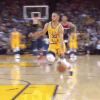Indeed wrote:Laowai wrote:I think if this could be resolved is the dispute just go to binding arbitration.
Get it away from the bull crap of emotion from both sides.
If I were an arbitrator look at the factors so both parties could benefit in the long term and minimize the hurt to the over spenders.
BRI at 50/50
Hard Cap at 73 million this is about 6,5 million over the 66.6 million Cper team in a 50/50 split on BRI
Currently only 3 teams are over that cap excluding signing of draft picks and restricted free agents.
SAS 100k over Orlando @ 1.8 over and LAL @ 18m over. Any team currently over the cap can sign only draft picks and must pay 4 to 1 tax.
While this looks excessive to a team like LAL it isn't the Lakers could go to a team like SAC give them Walton and pay his salary and give up a 1st and give World Peace to another team. In a 2012/13 season they will be under the cap because of expiring contracts.. Any player option not picked up could not resign with previous team. Players who completed contract could be resigned so Tim Duncan could resign with SAS.
Minimum spending per team 52 million below that threshold a team would have to pay a 2 to 1 tax.
If the 66.6 million isn't made the NBA will pay into a pool to compensate the players equally on the balance.
All contract currently on the books will be honored and no amnesty will be allowed.
Rookie contracts 5 years with team options after 2nd year with current salary base.
No maximum contracts but team must remain under the salary cap.
3 year contracts w 4th year team option, 1 star player exempt maximum 6 years.
No exemptions
6 year CBA
Owners to have a reasonable profit sharing agreement maybe something like 50% of local TV rights and 30% of ticket revenue to be evenly shared by all teams.
Revenue on BRI to go up or down depending on income every year.
Its not perfect but fair.
If the RBI is 50/50, I doubt the hard cap is at 73m, but perhaps 60m.
As for the TV profit sharing, if they got 50/50, most likely the share would be 10% of local TV rights and 0% of ticket revenue. They can argue that given a hard cap, teams should be competitive enough to make their own revenue through ticket sales and TV rights, therefore, it is the franchise's responsibilities to earn their own money.
Something like this is okay. Not completely satisfying but a deal both sides can live with.
And that's why I don't understand why both sides are claiming to need to know the exact percentage of BRI before attempting to construct a hypothetical system. We know that both sides aren't going to agree on a split past 47% - owners and 53 % percent players so we know that there won't be a greater deviation than 3 going either way...so why not attempt to construct a system based on all three of those hypothetical numbers?! That way, although it would likely be up for debate and fine tuning, we do have a skeleton of what we're looking at AND we'd be tackling both issues at the same time.
Like for example:
BRI Split: 53% - Players, 47% - Owners
Flex Cap system: Teams can only go over the cap if they are; a) signing rookies, extending or b) Exceptions (MLE or Injury). Franchise Tag, one player per team and would not count against cap. Max salary rollback. Cap set at 58 million. Teams over the cap pay a 2-1 tax and becomes harsher the longer you stay in the tax (3 years =2-1; 4yrs+ = 4 -1)
Elimination of the S&T. Minimum spending is 45 milMLE: Rolled back to about 4.7 - 5 mil/yr. 3 years + Team Option
Contracts: Elimination of 6 year contracts. Longest is 5 years. Rookie contract scales stay the same except for a slight roll back and more incentive ties. Slight rollback on existing contracts.
Amnesty: Gilbert Arenas rule

. Another amnesty clause. The amnestied player won't count against the cap but must be paid in full over a period of 5-8yrs maximum.
Length of CBA: 6 Years
Owners to have a reasonable profit sharing agreement maybe something like 50% of local TV rights and 30% of ticket revenue to be evenly shared by all teams.
Revenue on BRI to go up or down depending on income every year.
If the 66.6 million isn't made the NBA will pay into a pool to compensate the players equally on the balance.
Something in this mould I think would help to bring a competitive balance by distributing talent around the league. A competitive league is a profitable league so the numbers would obviously need some tweaking but something like this I think is fair for both sides. Players and owners stand to make money or break even.

























